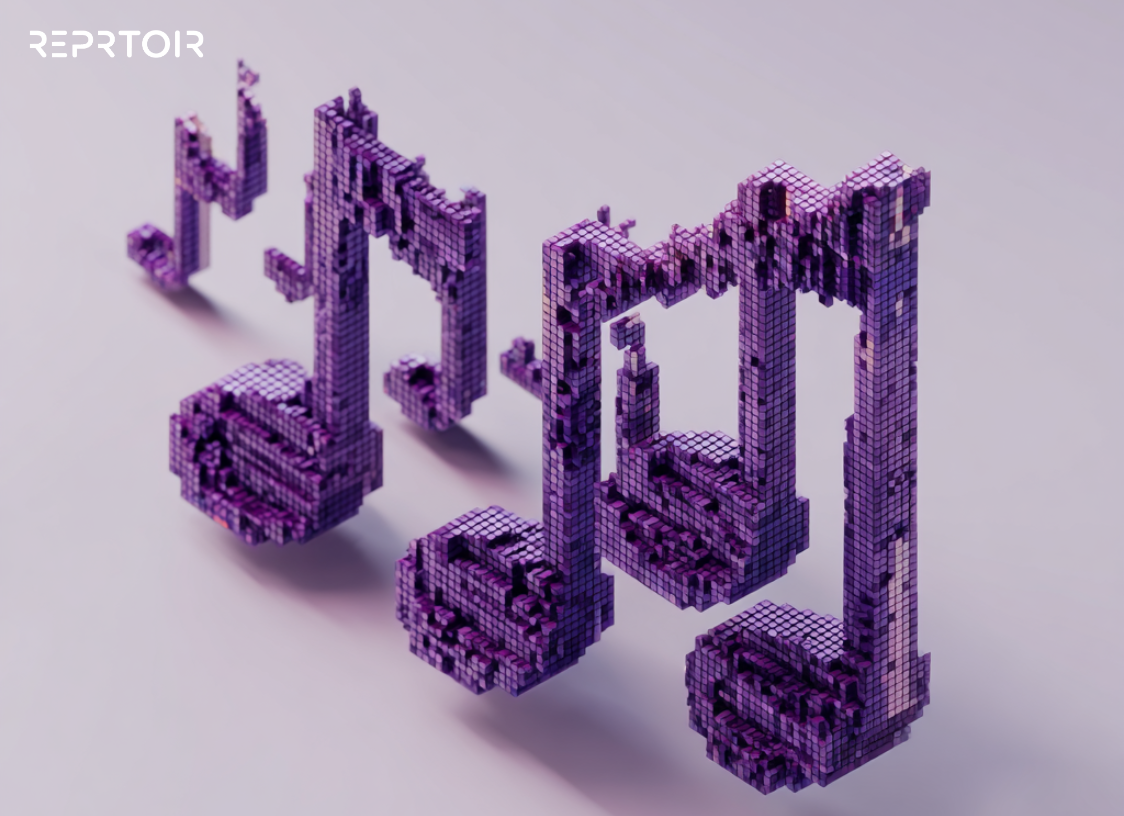The concept of Web3 has been gaining momentum over the past few years—largely driven by NFTs, cryptocurrency, and blockchain discussions.
But for many, it’s still unclear if Web3 has truly arrived—and, if it has, what that means for industries beyond the tech sector, including music.
By 2030, Web3 is expected to have a market value of almost $50 billion. And as the potential of Web3 expands beyond hype, labels, publishers, and other music industry stakeholders need to consider how this technology could affect their businesses.
In this article, we’ll break down the concept of Web3 and its future role in the music industry:
What Exactly is Web3, and Why Does It Matter?
Web3—or the third iteration of the internet—is a decentralized version of today’s web. Web3 is created on blockchain technology, which allows transparent and safe transactions without the need for intermediaries.
The goal of Web3 is to return control to individuals. As a result, users can own and monetize their content and data.
Why Web3 Matters for Music
For the music industry, however, Web3 promises to bring major shifts—such as decentralized ownership, new revenue streams, and opportunities for deeper fan engagement.
Historically, the music industry has been heavily reliant on intermediaries—record labels, streaming platforms, and distributors—to get music from artists to audiences.
However, Web3 introduces a new model where artists can interact directly with fans, reducing dependency on these middlemen.
Web3’s Current Role in Music
NFTs as a First Step
NFTs (Non-Fungible Tokens) became the most recognizable Web3 application in the music industry. They allowed artists to sell unique digital assets—such as music, artwork, or concert experiences directly to fans.
Although NFTs had a surge in popularity, they haven’t yet reached the mainstream as a lasting trend.
However, the success of NFTs revealed Web3’s potential to let artists monetize their work in new ways.
Expanding Beyond NFTs
Beyond NFTs, Web3 opens possibilities—like decentralized music streaming platforms, artist-run DAOs (Decentralized Autonomous Organizations), and blockchain-based rights management.
Likewise, Audius—a decentralized streaming platform—uses blockchain technology to enable artists to publish music directly to fans while retaining the majority of revenue. This results in a bypass of traditional distribution fees.
2. Potential Web3 Applications for Labels and Publishers
Transparent Royalty Tracking
One of the most promising uses of Web3 in the music industry is the potential for transparent royalty tracking.
Blockchain-based systems could provide real-time, tamper-proof records of streams and downloads, ensuring that royalties are accurately distributed.
Direct-to-Fan Sales and Experiences
Web3 enables artists to directly engage fans with exclusive content, merchandise, or experiences.
Publishers and labels could benefit from launching branded NFT platforms or hosting virtual meet-and-greets, creating a sense of exclusivity that appeals to dedicated fans.
Decentralized Licensing and Rights Management
Smart contracts—a Web3 tool that automates agreements—could streamline licensing for music use in media, advertisements, and beyond. With smart contracts, royalties could be distributed immediately upon usage.
Challenges to Web3’s Adoption in the Music Industry
1. Technological and Legal Complexities
The infrastructure for Web3 is still in its infancy, and integrating blockchain into existing systems can be complex.
In addition, the legal framework for Web3, particularly regarding rights management, is still evolving, making it difficult for publishers and labels to navigate compliance confidently.
2. Scalability and Environmental Concerns
Early blockchain technologies, especially Ethereum, have faced criticism for high energy consumption.
Although newer chains aim to be more eco-friendly, scalability and sustainability challenges remain, affecting Web3’s potential for mass adoption.
3. Market Volatility and Speculation
The early days of Web3—especially NFTs—saw market volatility and speculative buying, which has led some to question its staying power.
Labels and publishers may hesitate to invest in Web3 applications, uncertain if the technology will endure or fade with shifting trends.
Practical Steps for Labels and Publishers to Explore Web3
1. Experiment with Limited Web3 Releases
Labels can start small by releasing a few exclusive tracks or artist experiences as NFTs, testing fan interest without over-committing resources.
This “toe in the water” approach helps gauge demand and determine the best path forward.
2. Collaborate with Established Web3 Platforms
To avoid the overhead of developing in-house blockchain solutions, labels and publishers can collaborate with established Web3 music platforms like Audius, Royal, or Catalog.
These platforms offer infrastructure and support, enabling labels to explore Web3 without significant technical investment.
3. Educate Staff and Artists on Web3
For Web3 initiatives to succeed, labels and publishers need internal knowledge.
For example, offering training sessions or workshops on Web3 basics and potential music applications can empower teams to develop informed strategies and lead the industry forward.
Conclusion: Is Web3 Here to Stay?
Although Web3 may not yet be fully realized, its potential to reshape the music industry is undeniable. For labels and publishers, the time to consider Web3 is now.
Starting small, staying informed, and engaging with Web3's evolving technology will help you stay ahead.
At Reprtoir, we can help with catalog management, release building, royalty accounting, music sharing, and much more.
Reach out to us for more details.










